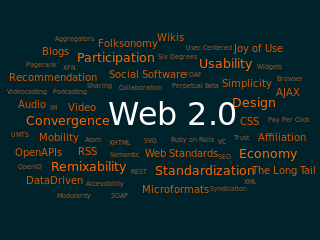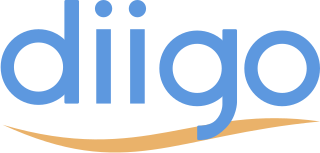Social software, also known as social apps or social platform includes communications and interactive tools that are often based on the Internet. Communication tools typically handle capturing, storing and presenting communication, usually written but increasingly including audio and video as well. Interactive tools handle mediated interactions between a pair or group of users. They focus on establishing and maintaining a connection among users, facilitating the mechanics of conversation and talk. Social software generally refers to software that makes collaborative behaviour, the organisation and moulding of communities, self-expression, social interaction and feedback possible for individuals. Another element of the existing definition of social software is that it allows for the structured mediation of opinion between people, in a centralized or self-regulating manner. The most improved area for social software is that Web 2.0 applications can all promote co-operation between people and the creation of online communities more than ever before. The opportunities offered by social software are instant connections and opportunities to learn. An additional defining feature of social software is that apart from interaction and collaboration, it aggregates the collective behaviour of its users, allowing not only crowds to learn from an individual but individuals to learn from the crowds as well. Hence, the interactions enabled by social software can be one-to-one, one-to-many, or many-to-many.

Delicious was a social bookmarking web service for storing, sharing, and discovering web bookmarks. The site was founded by Joshua Schachter and Peter Gadjokov in 2003 and acquired by Yahoo! in 2005. By the end of 2008, the service claimed more than 5.3 million users and 180 million unique bookmarked URLs. Yahoo sold Delicious to AVOS Systems in April 2011, and the site relaunched in a "back to beta" state on September 27 that year. In May 2014, AVOS sold the site to Science Inc. In January 2016 Delicious Media, a new alliance, reported it had assumed control of the service.
Furl was a free social bookmarking website that allowed members to store searchable copies of webpages and share them with others. Every member received 5 gigabytes of storage space. The site was founded by Mike Giles in 2003 and purchased by LookSmart in September 2004. Diigo bought it from LookSmart in exchange for equity.
Social bookmarking is an online service which allows users to add, annotate, edit, and share bookmarks of web documents. Many online bookmark management services have launched since 1996; Delicious, founded in 2003, popularized the terms "social bookmarking" and "tagging". Tagging is a significant feature of social bookmarking systems, allowing users to organize their bookmarks and develop shared vocabularies known as folksonomies.
Mozilla Firefox has features which distinguish it from other web browsers, such as Google Chrome, Safari, and Microsoft Edge.
CiteULike was a web service which allowed users to save and share citations to academic papers. Based on the principle of social bookmarking, the site worked to promote and to develop the sharing of scientific references amongst researchers. In the same way that it is possible to catalog web pages or photographs, scientists could share citation information using CiteULike. Richard Cameron developed CiteULike in November 2004 and in 2006 Oversity Ltd. was established to develop and support CiteULike. In February 2019, CiteULike announced that it would be ceasing operations as of March 30, 2019.

In information systems, a tag is a keyword or term assigned to a piece of information. This kind of metadata helps describe an item and allows it to be found again by browsing or searching. Tags are generally chosen informally and personally by the item's creator or by its viewer, depending on the system, although they may also be chosen from a controlled vocabulary.
Connotea was a free online reference management service for scientists, researchers, and clinicians, created in December 2004 by Nature Publishing Group and discontinued in March 2013. It was one of a breed of social bookmarking tools, similar to CiteULike and del.icio.us, where users can save links to their favourite websites. ReadCube is a similar free service that offers storage, annotation and sharing tools specifically for scientific documents.
Newsvine was a community-powered, collaborative journalism online newspaper which drew content from its users and syndicated content from mainstream sources such as The Associated Press. Users could write articles, "seed" links to external content, and discuss news items in an online forum. These news items were submitted by both users and professional journalists. Newsvine, the company, was not a news bureau and exercised no editorial voice, but provided social news platform for the online community which had grown around it. Members decided with their online actions what news articles stay on the site and what news is removed. Newsvine was named the Top News Site of 2006 and one of the 50 Best Websites of 2007 by Time magazine.
nofollow is a setting on a web page hyperlink that directs search engines not to use the link for page ranking calculations. It is specified in the page as a type of link relation; that is: <a rel="nofollow" ...>. Because search engines often calculate a site's importance according to the number of hyperlinks from other sites, the nofollow setting allows website authors to indicate that the presence of a link is not an endorsement of the target site's importance.
Google Bookmarks was an online bookmarking service from Google, launched on October 10, 2005. It was an early cloud-based service that allowed users to bookmark webpages and add labels or notes. The service never became widely adopted by Google users.
In the context of the World Wide Web, a bookmark is a Uniform Resource Identifier (URI) that is stored for later retrieval in any of various storage formats. All modern web browsers include bookmark features. Bookmarks are called favorites or Internet shortcuts in Internet Explorer and Microsoft Edge, and by virtue of that browser's large market share, these terms have been synonymous with bookmark since the First Browser War. Bookmarks are normally accessed through a menu in the user's web browser, and folders are commonly used for organization. In addition to bookmarking methods within most browsers, many external applications offer bookmarks management.
Faves was a social bookmarking and networking software that installs a single browser button for users to "fave" a webpage, making a link to the page part of their Faves profile. Until October 2007, Faves was called Blue Dot. As of January 2012, the service has migrated to fave.net, and later on migrated to MaxiConnect.com and is no longer active on faves.com which says "Faves is evolving to social couponing."
My Web was a social bookmarking website launched by Yahoo! in June 2005. It allowed users to bookmark a web page, along with a description, either just for him/herself, for selected contacts or for everyone. The user could also add tags so that other users could search for tags and see the bookmarked site. Users could add contacts to their My Web account, which allowed them to view the user's tags and also some tags that the viewer submitted.
HCL Connections is a Web 2.0 enterprise social software application developed originally by IBM and acquired by HCL Technologies in July 2019. Connections is an enterprise-collaboration platform which aims to helps teams work more efficiently. Connections is part of HCL collaboration suite which also includes Notes / Domino, Sametime, Portal and Connections.

Diigo is a social bookmarking website that allows signed-up users to bookmark and tag Web pages. Additionally, it allows users to highlight any part of a webpage and attach sticky notes to specific highlights or to a whole page. These annotations can be kept private, shared with a group within Diigo, or be forwarded to someone else via a special link. The name "Diigo" is an acronym from "Digest of Internet Information, Groups and Other stuff".
Enterprise bookmarking is a method for Web 2.0 users to tag, organize, store, and search bookmarks of both web pages on the Internet and data resources stored in a distributed database or fileserver. This is done collectively and collaboratively in a process by which users add tag (metadata) and knowledge tags.
Folksonomy is a classification system in which end users apply public tags to online items, typically to make those items easier for themselves or others to find later. Over time, this can give rise to a classification system based on those tags and how often they are applied or searched for, in contrast to a taxonomic classification designed by the owners of the content and specified when it is published. This practice is also known as collaborative tagging, social classification, social indexing, and social tagging. Folksonomy was originally "the result of personal free tagging of information [...] for one's own retrieval", but online sharing and interaction expanded it into collaborative forms. Social tagging is the application of tags in an open online environment where the tags of other users are available to others. Collaborative tagging is tagging performed by a group of users. This type of folksonomy is commonly used in cooperative and collaborative projects such as research, content repositories, and social bookmarking.

Aldiko is an e-book reader application for the Android and iOS operating systems. It supports the EPUB format for digital publications and incorporates facilities for browsing online catalogs on thousands of books and downloading them directly into the user's personal library. The application features a bookshelf-like user interface that lets user navigate their collection of eBooks. It also provides a customizable reading experience through configurable font and background color, font size and type, margin size, display brightness, page turn mode, etc. Additionally, the application allows users to import their own books to read them on the go. Aldiko does not support font embedding.



